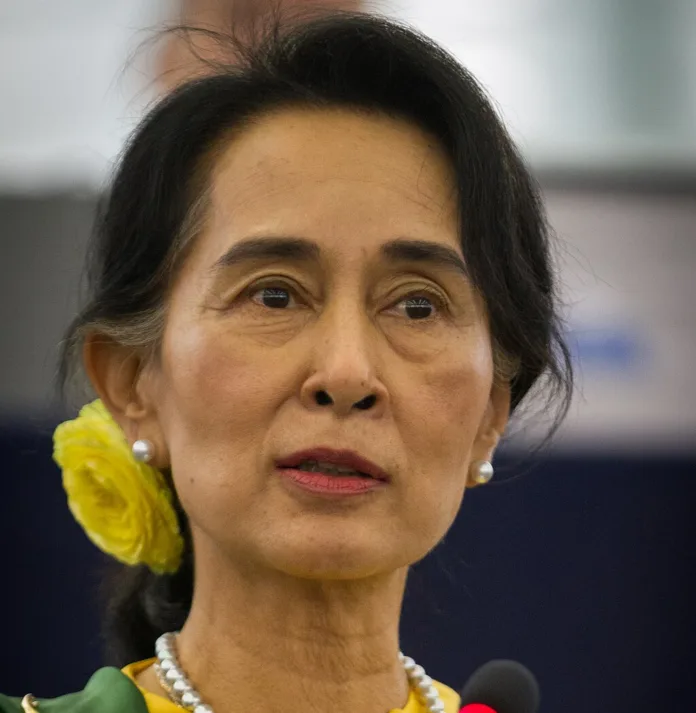Myanmar’s political landscape remains chaotic following the military coup that deposed its democratically elected government, with widespread unrest triggering significant national and international concern. Mass protests, led by a populace demanding a return to civilian rule, are met with military crackdowns, intensifying accusations of human rights violations and plunging Myanmar deeper into crisis.
The military coup, justified by alleged electoral fraud, marks a devastating regression from Myanmar’s fledgling democratic progress post-2011. The military’s historical dominance has repeatedly stifled democratic evolution, with the current situation exacerbating socio-political fractures.
The ousted leader, Aung San Suu Kyi, remains a symbolic figure whose imprisonment underscores the military’s contempt for political dissent. Her detention draws international condemnation, reinforcing demands for her release and restoration of democratic governance.
Embed from Getty ImagesInternational responses vary, with Western countries imposing targeted sanctions against the junta while ASEAN’s reaction showcases regional diplomatic complexities. The regional body’s principle of non-interference clashes with burgeoning regional instability, limiting its ability to mediate effectively.
Global organizations like the United Nations persistently call for dialogue and reconciliation, but the junta’s hostility to external pressure complicates efforts for meaningful intervention. The turmoil poses potential destabilization risks across Southeast Asia, posing challenges to regional security and economic prospects.
Civil society and international human rights organizations continue to advocate for human rights protection and the promotion of democratic processes. Their roles are vital for fostering awareness and sustaining pressure on the military regime to engage in dialogue.
In resolving the Myanmar crisis, there is a pressing need for a balanced approach that combines international pressure with support for domestic actors advocating democracy and human rights. The conflict emphasizes the broader geopolitical complexities, framing Myanmar as a focal point in China’s regional ambitions and the West’s democratic agenda.
Perspectives
Geopolitical Perspective: A geopolitical perspective underscores the regional implications of Myanmar’s crisis, focusing on China’s role and the regional power dynamics. The Center for Strategic and International Studies and the Lowy Institute provide in-depth analyses on how Myanmar’s turmoil affects regional stability and China’s strategic interests. This viewpoint highlights the potential shifts in alliances and the critical role of regional organizations like ASEAN in mediating the crisis.
Sources:
CSIS
LOWY INSTITUTE
Human Rights Perspective: The human rights perspective focuses on the impact of military actions on Myanmar’s civilian population. Reports from Amnesty International and the International Federation for Human Rights emphasize the widespread human rights abuses and the oppressive measures employed by the junta. These organizations advocate for international interventions and sanctions aimed at restoring human rights and democratic governance.
Sources:
AMNESTY INTERNATIONAL
FIDH
Economic Perspective: Economic perspectives explore the crisis’s impact on Myanmar’s economy and regional economic implications. The International Monetary Fund and the World Bank provide insights into how prolonged instability affects Myanmar’s economic prospects and regional investment climates. This lens examines the necessity for policies that stabilize economies while promoting sustainable development amidst political turmoil.
Sources:
IMF
WORLD BANK GROUP
